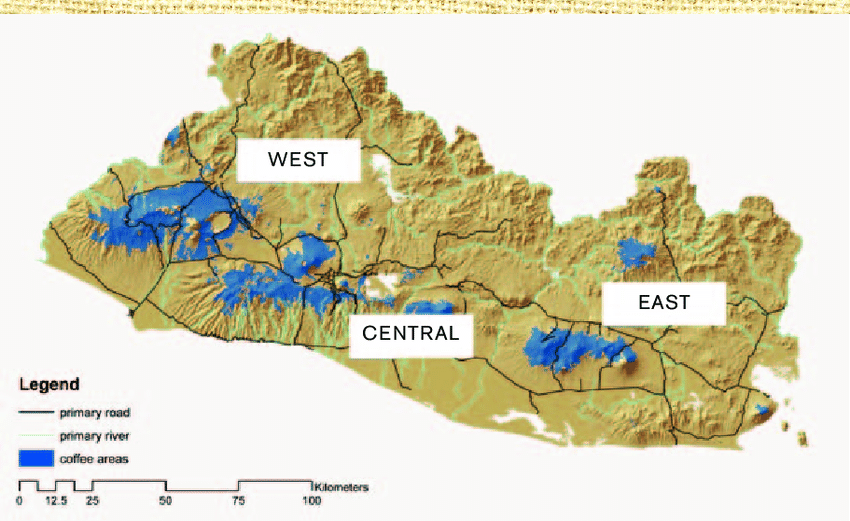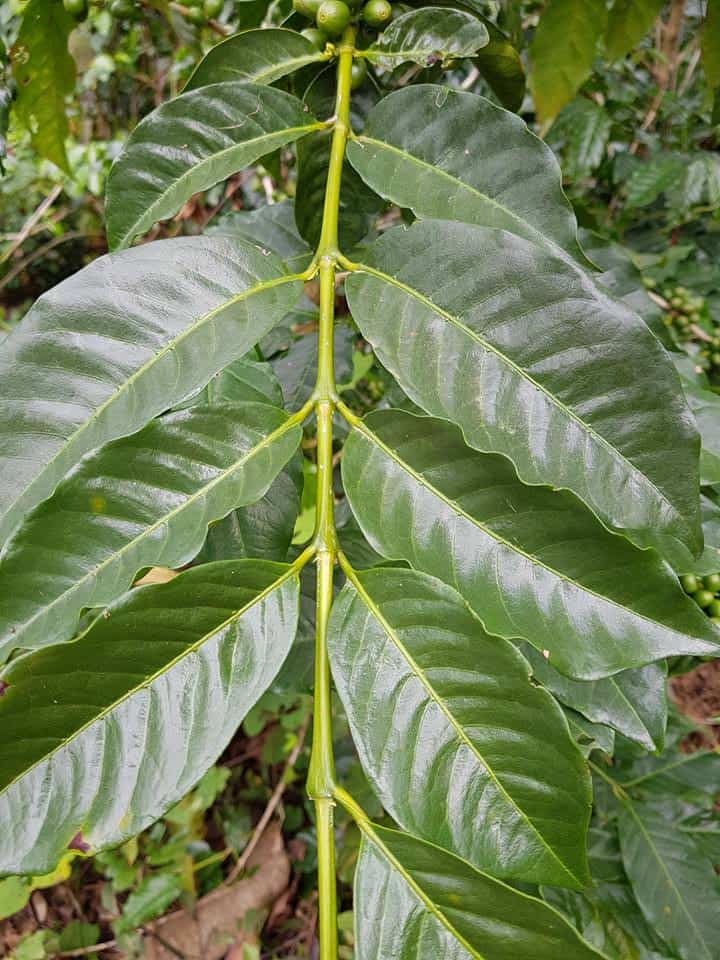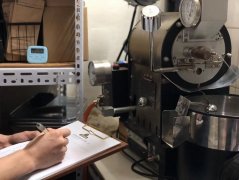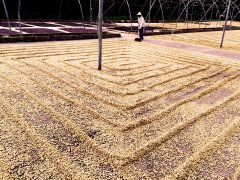Characteristics of Arabica coffee beans in El Salvador the story and flavor of Pacamara coffee beans
The coffee produced in El Salvador belongs to the Arabica coffee category. The variants of coffee are Bourbon, Pacas, Tekisic, Pacamara and Maragogype. The main type of coffee plant found in most plantations is bourbon, followed by Pacas.

Pacamara: physically, it is a big fruit and seed. Good body, aroma and acidity as well as unique flavor. Pacamara is an Arabica coffee hybrid made by crossing Pacas with Red Maragogype; this type of coffee is a medium-sized coffee plant with large berries. Like most Salvadoran coffee plants, Pacamara grows at high altitudes.
This coffee has a very obvious floral and sweet taste, with a long-lasting chocolate flavor. It has a complete body and a good aftertaste.
Maragogype: Maragogype is a fairly large variety of Arabica coffee, also known as elephant or giant coffee beans because they are too big. The quality of this coffee is not as good as that of other coffees grown in El Salvador. As a result, yields tend to be low, which makes the beans scarce and difficult to find.
Pacas: physically have bigger leaves than bourbon trees. The wine has excellent body, aroma and acidity, and excellent flavor-it should be cultivated above 1000 meters.
Bourbon / Tekisic: physically have large fruits and seeds-high yield, normal leaves, lower density than Pacamara. Excellent body, aroma and acidity as well as more balanced properties. Bourbon is arguably the most popular type of coffee produced in El Salvador, and the bourbon variety is distinguished from other varieties because it is a tall, long-branched plant that produces crimson berries. this type of coffee plant grows better at high altitudes.
Bourbon has a strong aroma with floral aromas; the taste is sweet and chocolate. In addition, this coffee has a strong taste, leaving an excellent finish on the tip of the tongue. All in all, this is a balanced coffee; it is sweet and pleasant, with unique chocolate-like properties. Very similar to bourbon, Tekisic is a tall, slow-growing plant that thrives at high altitudes. The quality of coffee is very similar to that of bourbon. This type of coffee plant is a variety of bourbon. In 1949, the Salvadoran Coffee Institute began to choose a project called "large-scale selection". The design selects seeds from high-performance bourbon plants to cultivate the next generation of coffee plants.
Catimor: physically similar to Pacas, resistant to coffee rust. Of all the coffee grown in El Salvador, it has the most bodies, similar to Sarchimor.
Sarchimor: physically similar to Pacas, resistant to coffee rust. Figure is also the most prominent feature.
The Geisha coffee plant variety was recently introduced to El Salvador and is likely to enter the coffee market in the next few years.

In 2015, the Salvadoran Coffee Commission developed a five-year development plan to revitalize the country's coffee industry. The move is aimed at improving the position of Salvadoran coffee in the global market, promoting domestic consumption and increasing the production of quality coffee.
Today, almost all Salvadoran coffee is grown in the shade. Data released by ICO estimate that more than 60 per cent of all Arabica coffee grown in the country is bourbon, with Pacas and Pacamara being the second and third most popular varieties, respectively.
World Coffee Research estimates that about 25 per cent of all coffee grown in El Salvador is a Pacas variety originating in the country. It was discovered in 1956 by the Pacas family (hence its name) that it is a natural mutation of the Bourbon variety.
Pacas plants were sought after for their high yield and small size (meaning they could grow more in less space on the farm) and later crossed with Maragogipe varieties to create Pacamara.
Pacamara is one of the most popular varieties in the world, with elegant acidity, medium to heavy body and almost creamy taste. Although it is now grown in Honduras, El Pacamara often smells of butterscotch, chocolate, red berries and citrus fruits.
As part of El Salvador's renewed focus on quality coffee production, some producers have begun to test their processing methods. Santos Arnulfo Diaz grows Pacas and Pacamara varieties in Finca La Trilla in Chalatenango in the north-west of the country.
Important Notice :
前街咖啡 FrontStreet Coffee has moved to new addredd:
FrontStreet Coffee Address: 315,Donghua East Road,GuangZhou
Tel:020 38364473
- Prev

How does different roasting affect coffee flavor? flavor description of shallow, medium and deep roasting degree of Hawaiian Kona coffee beans
Like most other coffees, Kona has different roasting methods. How do different roasting affect the flavor and taste of Kona coffee? Let's compare the state of Kona Coffee with different roasting degrees: deep roasting: Kona deep roasting brings you an unforgettable bold and bold flavor. Your nostrils are full of baking before you can taste it.
- Next

Bourbon characteristics of the History of Coffee cultivation in El Salvador, the birthplace of Pacas Pacamara Coffee beans
Position in the world as a coffee exporter (19gam20): sacks exported annually on the 19th (60kg) (19gam20): about 546000 percentage of the world coffee market: less than 1 per cent of other major agricultural exports: typical varieties of sugar, corn, rice, beans: bourbon, Pacas, Pacamara, Kaddura and Katuai major coffee producing areas
Related
- Detailed explanation of Jadeite planting Land in Panamanian Jadeite Manor introduction to the grading system of Jadeite competitive bidding, Red bid, Green bid and Rose Summer
- Story of Coffee planting in Brenka region of Costa Rica Stonehenge Manor anaerobic heavy honey treatment of flavor mouth
- What's on the barrel of Blue Mountain Coffee beans?
- Can American coffee also pull flowers? How to use hot American style to pull out a good-looking pattern?
- Can you make a cold extract with coffee beans? What is the right proportion for cold-extracted coffee formula?
- Indonesian PWN Gold Mandrine Coffee Origin Features Flavor How to Chong? Mandolin coffee is American.
- A brief introduction to the flavor characteristics of Brazilian yellow bourbon coffee beans
- What is the effect of different water quality on the flavor of cold-extracted coffee? What kind of water is best for brewing coffee?
- Why do you think of Rose Summer whenever you mention Panamanian coffee?
- Introduction to the characteristics of authentic blue mountain coffee bean producing areas? What is the CIB Coffee Authority in Jamaica?

